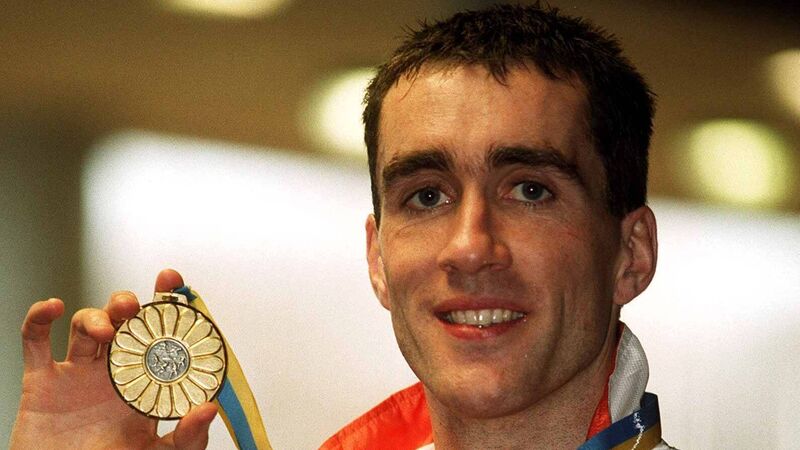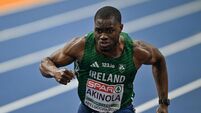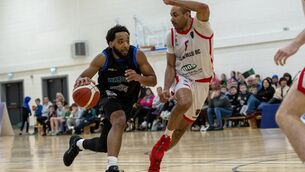The plan, the prep and the moment of truth: A Hall of Famer’s guide to properly punishing yourself

Ireland's Mark Carroll stands with his gold medal after winning the men's 3,000m, during the 26th European Indoor Athletics Championships, Gent, Belgium. Pic: Brendan Moran/SPORTSFILE
25 years later, Mark Carroll can still see it all. Mohammad Mourhit hitting the front early, the threat of pre-race favourite Rui Silva behind him, the pace rising and falling, his strategy, getting stuck in seventh and the weather. And then he stops.
“That’s actually not my favourite race you know,” he says, the blur of emotional and sensational memories in his mind separating as one surges to the front. It was 25 years last week that Carroll claimed gold in the Men’s 3000m at the European Indoor Championships in Ghent, Belgium. A different medal cuts right to his heart.











